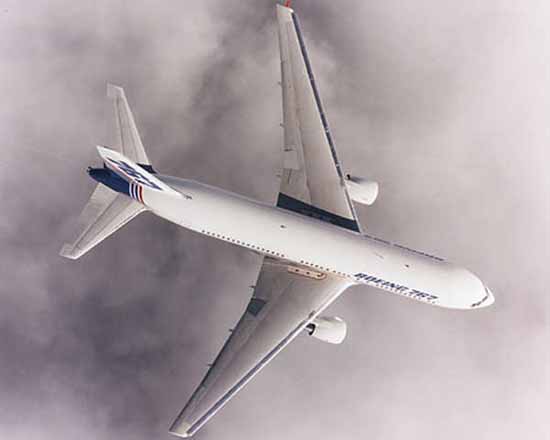
Pilots working for United Parcel Service (UPS) can opt out of flight assignments to and from China if they are concerned about contracting the new coronavirus, following an agreement between the Independent Pilots Association (IPA) and the US package delivery and logistics giant.
UPS said pilots who inform the company that they aren’t comfortable flying China routes because of the coronavirus will be “temporarily replaced on those flights”.
UPS CEO David Abney told CNBC business news: “We have cancelled some flights (to and from China) since it started, but it’s also been Chinese New Year and we would have cancelled some of those flights anyway. But if it goes longer then we’ll have to take a look.”
On Friday, Reuters reported that UPS had cancelled 22 flights to China because of the virus and normal manufacturing closures due to the Lunar New Year holiday.
The death toll from the viral outbreak in China now stands at well over 600 and the cumulative number of confirmed cases has surpassed 31,000.
Meanwhile, reflecting the uncertainty among airlines over the scale of the impact of the viral outbreak, Finnair said on Friday that it was unable to provide investors with a full-year revenue estimate “due to the situation with coronavirus”. Finnair said the direct financial impact of the outbreak during the first three months of 2020 was expected to be “relatively limited,” even if mainland China cancellations continued to the end of the first quarter.
As reported yesterday in Lloyd’s Loading List, US freight forwarder Flexport estimates that around 90% of passenger capacity between China and the rest of the world has now been withdrawn, due to the new coronavirus and its knock-on effects.
This cut in bellyhold space further reduces air freight capacity already limited by cuts in freighter services out of China and Hong Kong – initially for the traditional Chinese New Year slowdown, but subsequently also due to the new coronavirus and its knock-on effects. However, the main reason for the reductions in freighter capacity is understood to be the reduction in air freight demand, due to the extension of the lunar New Year holidays, rather than concerns about pilot and staff safety.
Neel Jones Shah, global head of air freight at Flexport, said that with bellyhold capacity accounting for around 45% of total air cargo capacity on Far East Westbound to Europe and trans-Pacific eastbound lanes to North America, this will have major ramifications for shippers.
“Many of the international carriers have announced that the suspensions (to and from China) will be, at a minimum, through to the end of April,” said Shah, adding that capacity cancellations from Hong Kong and Taiwan were also on the rise.
How big that impact is on shippers will depend on the ability of Chinese industry to resume production.
“We don’t know from a production standpoint exactly how much product is going to be able to be produced in the next few weeks; that’s really the wild card,” said Shah.
Although there is little data yet for February, in the last week of January, air freight volumes from China to Europe, relative to the same week in 2019, dropped by 66%, while airlines cut air freight capacity by 44% relative to the same week last year, according to CLIVE Data Services, which added that most of this fall in capacity was caused by a reduction of freighter services in anticipation of the weaker demand due to Chinese New Year.
“While the industry traditionally anticipates lower demand during Chinese New Year, the big unknown now is the impact of the coronavirus – at the start of a year where there was previously slight optimism for a modest recovery in air cargo volumes,” said MD Niall van de Wouw.
Source:lloydsloadinglist
The opinions expressed herein are the author's and not necessarily those of The OLO News.
Quality Companies